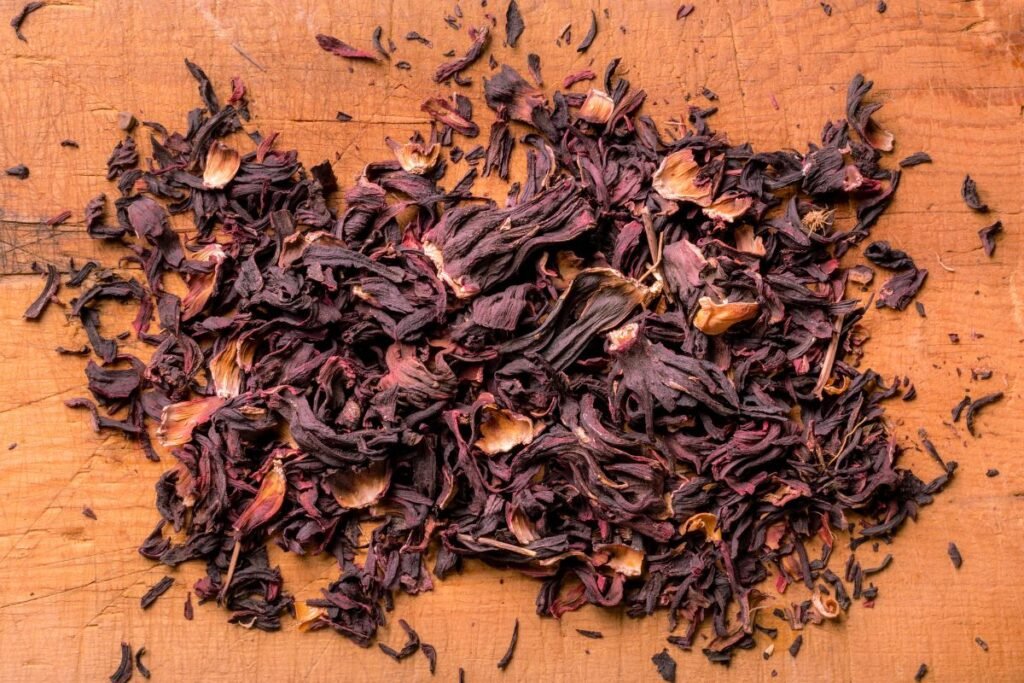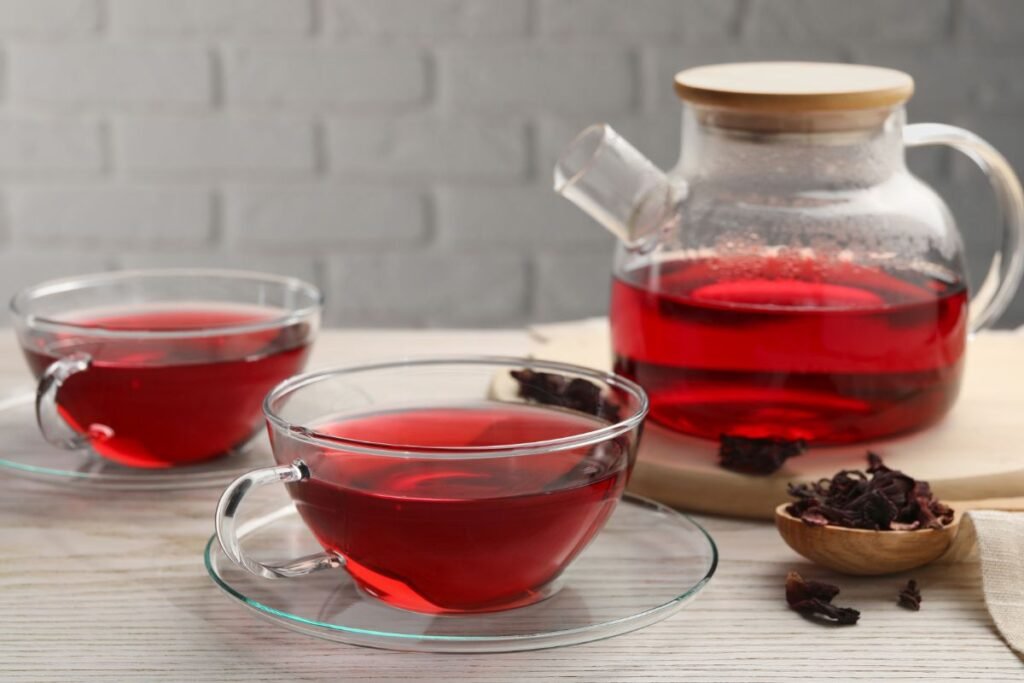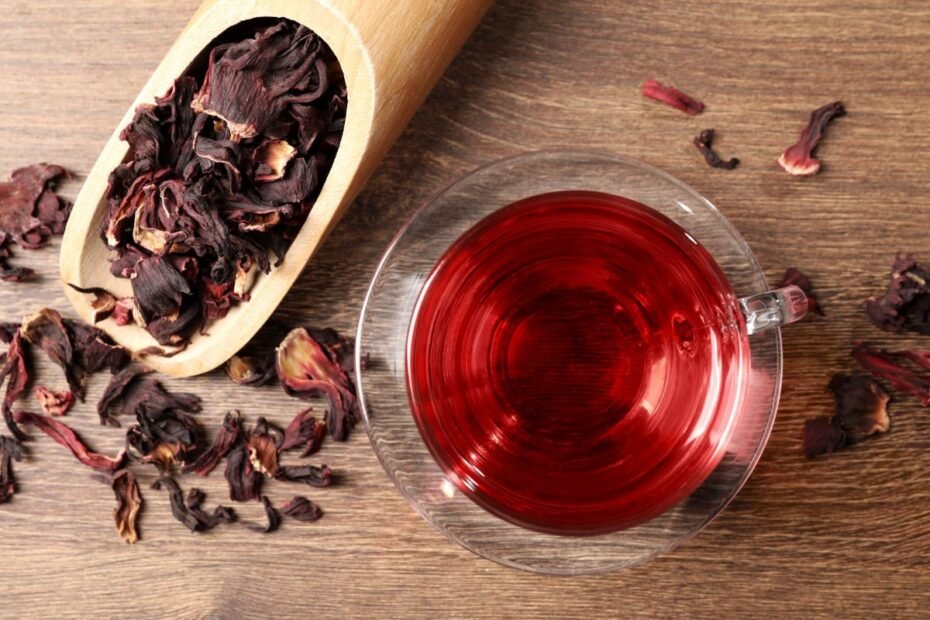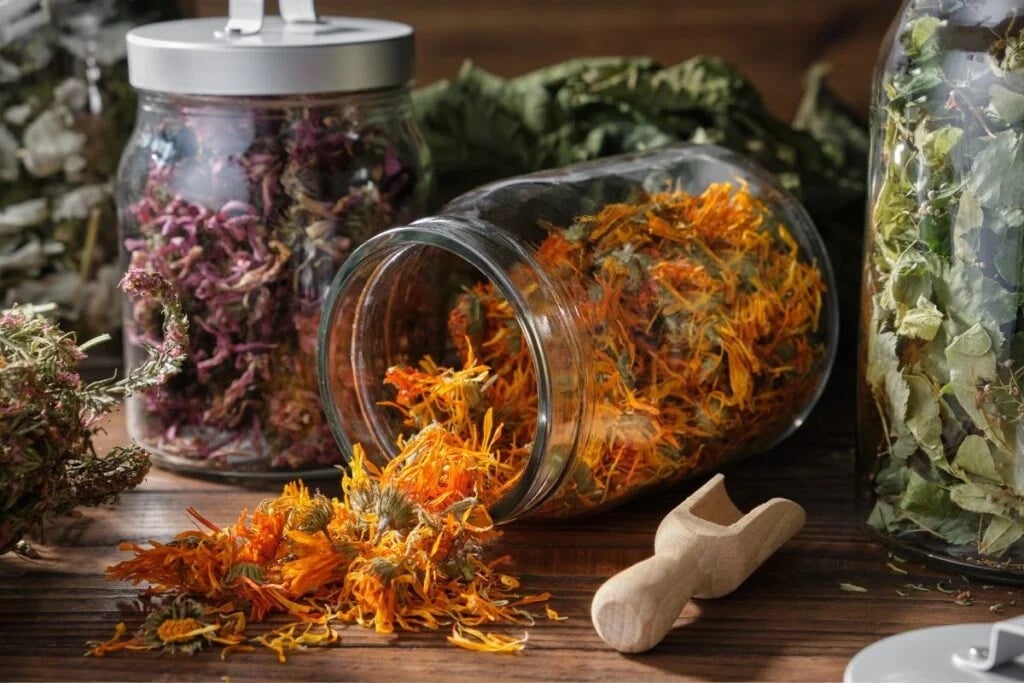Roselle: Lovely Blossoms for Sour Red Tea
Hibiscus (Hibiscus) is a plant of the mallows (Malvaceae). This family consists of several hundred species of plants, both annuals and perennials. Most of them are ornamental plants. But only one (the Roselle or Jamaican sorrel) is used to produce the popular red hibiscus tea. And let’s find out hibiscus tea benefits, which will blow your mind.
Roselle is native to the tropical lands of the Old World and was only later introduced to America. Jamaican sorrel is an annual or perennial plant that grows up to a shrub of 2–2.5 meters with large leaves of 8–15 cm and beautiful flowers of 8–10 cm in diameter. People use these flowers for making hibiscus tea.
The Miraculous Health Benefits of Hibiscus Tea
Hibiscus tea benefits are:
- It is suitable for drinking, gargling the throat, and infusions for angina and bronchitis treatment.
- It acts as an antioxidant, protecting cells from the effects of free radicals and removing destructive molecules, thus protecting the body from aging.
- The tea helps with high blood pressure and cholesterol. 2-3 cups of hibiscus tea daily can reduce high blood pressure without causing any adverse effects.
- It helps to treat skin ulcers, wounds, burns, and insect bites (rub the tea on the skin or add a hibiscus flower).
- People use this tea for beauty maintenance. Hibiscus cleanses and firms the skin and helps to remove wrinkles, blemishes, and eye fatigue.
- It improves the digestive tract. You can use it during dysentery.
- For hair beauty and preventing dandruff.
- Hibiscus tea supports the immune system because of the richness of vitamin C.
- It fights inflammation in the body.
- This tea helps to treat liver diseases.
- Hibiscus beverage reduces the risk of oncological diseases.
- It improves metabolism, so it can help to manage or lose weight. Hibiscus contains phesolamine, which blocks an enzyme breaking down carbohydrates, so the body absorbs fewer calories.
- The tea reduces anxiety.

How Do I Prepare Hibiscus Tea
You can drink hibiscus tea in two ways: as a hot drink in winter and as a chilled beverage in summer. Hot tea has vitamin C, which boosts your immunity. Iced hibiscus tea helps you normalize your body temperature. It keeps your body hydrated in hot weather.
To make hot hibiscus tea, add one teaspoon of crushed hibiscus petals in a cup, let it steep for roughly 5–10 minutes in hot water, then drink it.
If you like to feel the freshness of the hibiscus tea, try the following recipe. This tea recipe gives you a chill beverage, which will be suitable for hot summer days. Let’s start to prepare this tea in the evening. Add two tablespoons of chopped hibiscus flowers to a pot. Pour 1 liter of cold water on them. Then wait till morning, boil this mixture of water and herbs for about 5 minutes, and leave it to cool. If the tea is too sour for you, you can add honey. A sprig of fresh mint and some ice cubes will be a great decoration in a glass. Enjoy!
Hibiscus Tea Benefits for Hair: Mask Recipe
To moisturize your scalp, reduce flaking, strengthen your hair, give it a natural shine, stimulate growth, and prevent graying hair, you can make an antioxidant-rich hibiscus hair mask at home.
- Crush a handful of dried hibiscus petals (preferably in a coffee grinder or a high-powered blender). You can also buy ready-made hibiscus powder.
- Make a decoction by adding herbs to hot water. Then wash your head with it. The mixture of hibiscus powder, calendula, sage, or other herb teas has a better effect. Rub this blend into your scalp for about 10–15 minutes (wear a shower cap to prevent it from drying out).
- Rinse your hair well afterward.
Hibiscus and St. John’s Wort Tea for Sleep Improvement
If you have trouble sleeping, feel stressed or anxious, or find it difficult to fall asleep at night, try making a hibiscus and St. John’s wort tea.
Add half a teaspoon of each crushed blossom—hibiscus and St. John’s wort—in a cup. Allow the tea to steep for 10–15 minutes, and let the tea cool down slightly. It is crucial to drink just before bed. This tea will help you to relax and fall asleep faster.

Side Effects of Hibiscus
Even though it contains many beneficial substances, some people should refuse this tea:
- It is high in vitamin C, so it can increase stomach acidity if you have gastritis.
- Hibiscus tea is not suitable to drink while taking any medication. It is worth consulting your doctor about potential interactions.
During pregnancy, it is advisable to take hibiscus tea with caution. It is not advisable to make a tea of intense consistency. The mild taste of the tea is preferable. Keep a constant eye on your health.
Sources:
Associative photos from © Canva.

